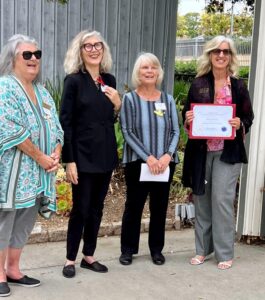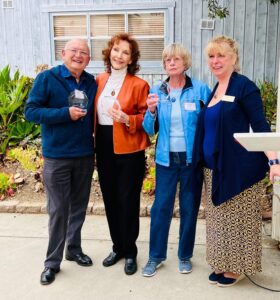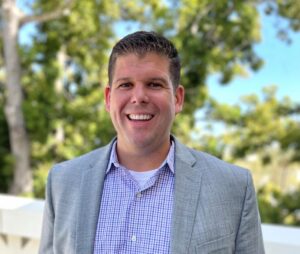Shoe
Hi and Lois
Marvin
Tiger
Moose and Molly
Mallard Fillmore
As we mark the 10-year anniversary of the National Plan to Address Alzheimer’s Disease, which arose from the National Alzheimer’s Project Act (NAPA), it’s striking to pause for a moment and consider how far we have come. Thanks to increased congressional funding, NIH spending on Alzheimer’s and related dementias research advanced nearly 4.5-fold between fiscal years 2015 and 2020, reaching $2.87 billion. This momentum has enabled NIA-funded science to take significant strides forward.
Ten years ago, we knew of just 10 genes associated with Alzheimer’s disease, and 20 years ago, we knew of only four. Today, researchers have identified more than 70 associated genetic areas, opening multiple new foci for potential prevention and treatments.
It is extraordinarily difficult to mimic the brain’s complexity in standard lab models. Improving these models will help us better understand brain-related diseases and test existing and novel drugs as potential therapies. Thanks to NIH research, we now have the “Alzheimer’s in a dish” model, the first to contain the amyloid and tau hallmarks of the disease. In recent years, scientists built two additional “disease-in-a-dish” models and have developed more than 50 new mouse models including one that produces a form of the human beta-amyloid protein.
Before biomarker tests were developed in the early 2000s, the only sure way to know whether a person had Alzheimer’s was via autopsy. Researchers can now use brain imaging methods or lab tests to diagnose people living with the disease. NIA-funded scientists continue to explore novel blood biomarkers for various forms of amyloid, tau, and other promising targets. As one result, NIA small business innovation research funding helped validate and commercialize the PrecivityAD™ test, a more affordable and less invasive alternative to traditional Alzheimer’s tests like spinal taps or brain scans. This blood biomarker-based test is now widely available to doctors and researchers across the United States.
The Accelerating Medicines Partnership® Program for Alzheimer’s Disease has aided discovery of more than 550 novel candidate therapeutic targets and is now exploring a precision medicine approach to therapy development. In a parallel effort, the Drug Repurposing for Effective Alzheimer’s Medicines (DREAM) study, investigators found that use of certain rheumatoid arthritis drugs is associated with a lower incidence of Alzheimer’s and related dementias in people with cardiovascular disease.
Scientists are learning more about risk factors and potential lifestyle changes that may help prevent dementia. In 2019, a randomized clinical trial showed that intensive high blood pressure control may significantly reduce the buildup of brain white matter lesions and the occurrence of mild cognitive impairment. In addition, a 2020 study found that individuals who made multiple healthy lifestyle choices may have a much lower risk for Alzheimer’s.
The bi-weekly highlight of some of the new developments being proposed, approved or under construction in Ventura
by Carol Spector and Eileen Shaw, Livable Ventura
Sanjon Village (formerly The Pearl)- a 3+ story residential building with 33 condominiums under construction on the corner of Sanjon and Thompson
Thompson Village (formerly Brisa 29)- a 3 story building with 29 condominiums on the corner of Thompson and Chrisman.
Cora Apartments- 3-4 story mixed use development 140 apartments under construction at the corner of Santa Clara and Ventura Ave.
Villa San Clemente- a 3 story mixed use building with 10 condominiums under construction at the corner of East Main and San Clemente.
2200 East Main- a 3+ story mixed use development with 26 condominiums under construction at the corner of East Main and Coronado.
11101 Carlos Street- 3 story mixed use building with 43 apartments under construction near Wells and Telegraph.
For more information go to www.LivableVentura.com or access the city development map at www.cityofventura.ca.gov Permit Services “button” or Development Map Permit Services | Ventura, CA for projects Under Review, Scheduled for Hearing or Entitled (Approved) and Under Construction.
 CAREGIVERS: Volunteers Assisting the Elderly in Ventura County presented the Norm Weitzel Award at the Evening of Gratitude on May 19 for 2020, 2021 and 2022 to Volunteers Keith York, Carol Boatner and Louise Dunlap in memory of her husband, Jesse Dunlap.
CAREGIVERS: Volunteers Assisting the Elderly in Ventura County presented the Norm Weitzel Award at the Evening of Gratitude on May 19 for 2020, 2021 and 2022 to Volunteers Keith York, Carol Boatner and Louise Dunlap in memory of her husband, Jesse Dunlap.
Keith York started volunteering with CAREGIVERS in 1984 and still volunteers to this day, having served in every capacity from Board to Advisory to Honorary. Each year, he donates roses for at least 50 seniors on Valentine’s Day–some of whom have never had a Valentine delivered.
Carol Boatner volunteered with CAREGIVERS for the first 20 years before she joined the staff, helping to pilot one of the original programs that launched more than 1,000 volunteer caregiving organizations throughout the nation. See nvcnetwork.org
Louise Dunlap champions Jesse Dunlap’s legacy with CAREGIVERS to this day. His service began after he retired from the United States Air Force and stepped up as an Assembly Delegate for the Senior Legislature. Jesse was a huge advocate for seniors back when the Silver Tsunami was just a theory. He knew what was ahead and he brought his advocacy and his helping hands to CAREGIVERS, and Louise has continued that support year after year.
 Lori Franco, Karen Jensen, Ann Romero and Ginny Camarillo serve as the scholarship selection committee for student volunteers in CAREGIVERS’ Building Bridges Intergenerational Program. Student Engagement Coordinator, Lori Franco, has rebuilt this program using Adult Team Leaders who supervise 2-3 high school students for one-hour visits to do household chores throughout Ventura County.
Lori Franco, Karen Jensen, Ann Romero and Ginny Camarillo serve as the scholarship selection committee for student volunteers in CAREGIVERS’ Building Bridges Intergenerational Program. Student Engagement Coordinator, Lori Franco, has rebuilt this program using Adult Team Leaders who supervise 2-3 high school students for one-hour visits to do household chores throughout Ventura County.
Recently, CAREGIVERS forged new partnerships with ARC and Cole Vocational Services giving seniors a total of 45 home visits per month, a 225% in service. Adult Team Leaders are needed throughout the County. Scholarship recipient Maria Bernal was not present.
Photo by Patricia Schallert
Those using wheelchairs, walkers and strollers (or just walking) can now easily get to the ocean using a new blue mat on the sand at Harbor Cove Beach. The mat stretches about 100 feet and cost $4,800.00. It was installed by the Parks & Recreation.

by Richard Senate
For those who do not recall, Ventura spent a peck of money for a San Francisco artist to make a “Wavespout” statue that was to look like something out of Captain Nemo’s Submarine but looked like pluming. It never really spouted water right and when the end of the pier went down–it went into the drink. They recovered it and it sits in a City Yard. A twist bit of metal we could make it into a fountain, where Serra once stood as a monument to the city’s folly. Who could be against waves? Not in surf friendly Ventura. We would need a good interpretive sign to tell the story of wave spout otherwise this “Modern Art” might not be seen by the uneducated as really worth the price we paid.
The Copper Pluming like “sculpture” was installed at the end of the pier in 1993 at a coast of $80,000. It never worked right–and was damaged when 420 feet of the pier fell into the sea in the storms of 1996. So, it only had a 3-year life. It washed ashore and was salvaged to be re-installed after repairs–it wisely, never was and now sits in the City Yard. It would spit water out when the waves went by. $80,000 to a San Francisco “Artist” that could have been used for any number of useful things.

After a highly competitive, open recruitment process, the City of Ventura has hired Michael MacDonald as the new City Clerk.
“Having grown up in Ventura, I feel lucky to return to this community in a public service role,” said City Clerk Michael MacDonald. “I look forward to this new role and serving as a partner in democracy, ensuring that the residents of Ventura have an open, honest, and transparent government.”
As the City Clerk, MacDonald is responsible for managing and supervising the activities of the City Clerk’s Office including preparation of City Council agendas and minutes, overseeing recruitments and appointments for the city’s advisory groups, coordinating elections, and adherence to the Brown Act. Additionally, the City Clerk is accountable for compliance with the Public Records Act and the Political Reform Act.
With over five years of experience working in municipal government and two years with the state senate, MacDonald joins Ventura from the City of Berkeley where he served as the Assistant City Clerk. He holds a bachelor’s degree in Political Science from CSU Channel Islands and is a Certified Municipal Clerk (CMC).
“The city clerk wears many hats, including overseeing elections, council agendas, public records, meetings, and volunteer opportunities on city advisory committees,” said City Manager Alex D. McIntyre. “Michael is a great addition to the City’s leadership team. His experience will help further advance our commitment to public transparency and responsive local government services,” said City Manager Alex D. McIntyre.
For more information about the City of Ventura’s City Clerk’s Office, visit www.CityofVentura.ca.gov.

After a competitive, nationwide recruitment, the City of Ventura has selected Mitchell Cameron as the new Chief Technology Officer in the Information Technology (IT) Department.
“The City of Ventura recognizes the essential role information technology plays in connecting public services to our employees, residents, businesses, and community stakeholders,” said City Manager Alex D. McIntyre. “I’m glad to welcome Mitchell as the director of our newly formed information technology department.”
Mitchell was selected to lead the newly formed 23-member IT Department in implementing the City’s strategic plan. This includes managing new and replacement software, identifying emerging technologies, and ensuring strategic business investments are customer-focused and deliver the highest value to the public.
“I am truly excited to continue my work with the City of Ventura in this new capacity. I look forward to leading the organization’s effort to leverage technology and enhance the way we provide services to the community,” said Chief Technology Officer Mitchell Cameron.
Mitchell brings over 12 years of public and private sector experience to the position. He previously working for the Pleasant Valley Recreation and Park District, GEICO, and the United States Navy. He began his career with the City in 2017 as a Management Analyst in the then Finance and Technology Department. Soon after, he was promoted to Senior Analyst in the City Manager’s Office and was appointed the City’s Business Innovation Manager in 2021. He holds a master’s degree in Management Information Systems from National University, a master’s in Business Administration (MBA) from California Lutheran University, and a bachelor’s degree in Management from American Military University.
Although the City has long had an Information Technology Division within its Finance Department, Council approved the creation of an Information Technology Department in June 2021.
For more information about the City of Ventura’s Information Technology Department, visit www.CityofVentura.ca.gov/InformationTechnology.

The number of older Americans is rising, so the number of people with dementia is predicted to increase. However, some studies have shown that incidence rates of dementia — meaning new cases in a population over a certain period of time — have decreased in some locations, including in the United States. Based on observational studies, factors such as healthy lifestyle behaviors and higher levels of education may be contributing to such a decline. But the cause and effect is uncertain, and such factors need to be tested in a clinical trial to prove whether they can prevent dementia.
A review of published research evaluated the evidence from clinical trials on behavior and lifestyle changes to prevent or delay Alzheimer’s or age-related cognitive decline. The review found “encouraging but inconclusive” evidence for three types of behavioral changes (called interventions): physical activity, blood pressure control, and cognitive training. The findings mean that interventions in these areas are promising enough that researchers should keep studying them to learn more. Researchers continue to explore these and other interventions to determine whether — and in what amounts or forms — they might prevent dementia.
Although there is no effective treatment or proven prevention for Alzheimer’s and related dementias, in general, leading a healthy lifestyle may help address risk factors that have been associated with these diseases.
Control high blood pressure. High blood pressure, or hypertension, has harmful effects on the heart, blood vessels, and brain, and increases the risk of stroke and vascular dementia.
Manage blood sugar. Higher than normal levels of blood sugar, or glucose, can lead to diabetes and may increase the risk of heart disease, stroke, cognitive impairment, and dementia.
Maintain a healthy weight. Being overweight or obese increases the risk for related health problems such as diabetes and heart disease. Being active and choosing healthy foods can help maintain a healthy weight.
Eat a healthy diet. Aim for a mix of fruits and vegetables, whole grains, lean meats and seafood, unsaturated fats such as olive oil, low-fat or nonfat dairy products, and limit other fats and sugars.
Keep physically active. Physical activity has many health benefits, such as helping to prevent being overweight and having obesity, heart disease, stroke, and high blood pressure.
Stay mentally active. Lots of activities can help keep your mind active, including reading, playing board games, crafting or taking up a new hobby, learning a new skill, working or volunteering, and socializing.
Stay connected with family and friends. Connecting with people and engaging in social activities can prevent social isolation and loneliness, which are linked to higher risks for cognitive decline and Alzheimer’s disease.
Treat hearing problems. Hearing loss may affect cognition and dementia risk in older adults and can make it more difficult to interact with others.
Sleep well. Sleeping well is important for both your mind and body. Try to get seven to eight hours of sleep each night. Talk with your doctor if you are not getting enough sleep, sleeping poorly, or think you may have a sleep disorder.
Drink less alcohol. Drinking too much alcohol can lead to falls and worsen health conditions such as diabetes, high blood pressure, stroke, memory loss, and mood disorders. The National Institute on Alcohol Abuse and Alcoholism (NIAAA), part of the National Institutes of Health, recommends that men should not have more than two drinks a day and women only one. Learn more at NIAAA’s Rethinking Drinking website.
Stop tobacco use. At any age, stopping smoking can improve your health and lower the risk of heart attack, stroke, and lung disease.
Advance directives go into effect after the person no longer can make decisions on their own.
Many people are unprepared to deal with the legal and financial consequences of a serious illness such as Alzheimer’s disease or a related dementia. Legal and medical experts encourage people recently diagnosed with a serious illness — particularly one that is expected to cause declining mental and physical health — to examine and update their financial and health care arrangements as soon as possible. Basic legal and financial documents, such as a will, a living trust, and advance directives, are available to ensure that the person’s late-stage or end-of-life health care and financial decisions are carried out.
A complication of diseases such as Alzheimer’s and related dementias is that the person may lack or gradually lose the ability to think clearly. This change affects his or her ability to make decisions and participate in legal and financial planning.
People with early-stage Alzheimer’s or a related dementia can often understand many aspects and consequences of legal decision-making. However, legal and medical experts say that many forms of planning can help the person and his or her family address current issues and plan for next steps, even if the person is diagnosed with later-stage dementia.
There are good reasons to retain a lawyer when preparing advance planning documents. For example, a lawyer can help interpret different state laws and suggest ways to ensure that the person’s and family’s wishes are carried out. It’s important to understand that laws vary by state, and changes in a person’s situation — for example, a divorce, relocation, or death in the family — can influence how documents are prepared and maintained. Life changes may also mean a document needs to be revised to remain valid.
Families beginning the legal planning process should discuss their approach, what they want to happen, and which legal documents they’ll need. Depending on the family situation and the applicable state laws, a lawyer may introduce a variety of documents to assist in this process, including documents that communicate:
Health care wishes of someone who can no longer make health care decisions.
Financial management and estate plan wishes of someone who can no longer make financial decisions.
Learn how to get your affairs in order.
Advance Health Care Directives for People with Dementia
Advance directives for health care are documents that communicate a person’s health care wishes. Advance directives go into effect after the person no longer can make decisions on their own. In most cases, these documents must be prepared while the person is legally able to execute them. Health care directives may include the following:
A durable power of attorney for health care designates a person, sometimes called an agent or proxy, to make health care decisions when the person with dementia can no longer do so.
A living will records a person’s wishes for medical treatment near the end of life or if the person is permanently unconscious and cannot make decisions about emergency treatment.
A do not resuscitate order, or DNR, instructs health care professionals not to perform cardiopulmonary resuscitation (CPR) if a person’s heart stops or if he or she stops breathing. A DNR order is signed by a doctor and put in a person’s medical chart.